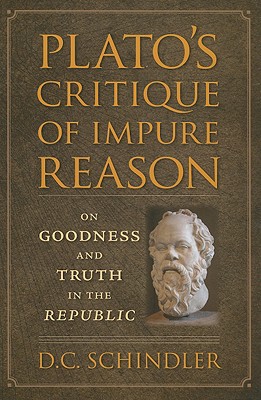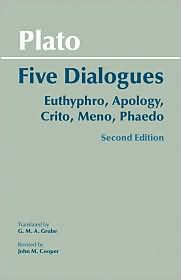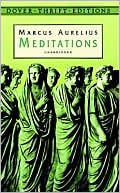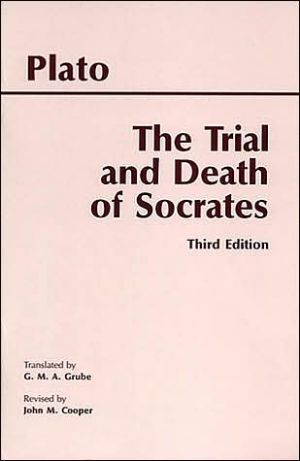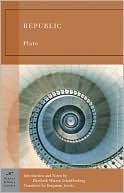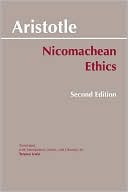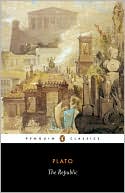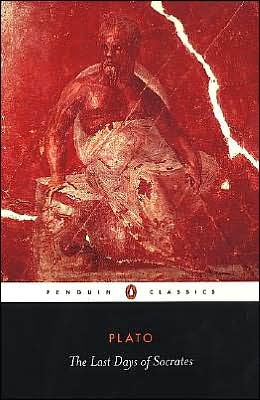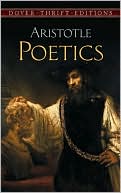Plato's Critique of Impure Reason: On Goodness and Truth in the Republic
Plato's Critique of Impure Reason offers a dramatic interpretation of the Republic, at the center of which lies a novel reading of the historical person of Socrates as the "real image" of the good. Schindler argues that a full response to the attack on reason introduced by Thrasymachus at the dialogue's outset awaits the revelation of goodness as the cause of truth. This revelation is needed because the good is what enables the mind to know and makes things knowable. When we read Socrates'...
Search in google:
Plato's Critique of Impure Reason offers a dramatic interpretation of the Republic, at the center of which lies a novel reading of the historical person of Socrates as the "real image" of the good. Schindler argues that a full response to the attack on reason introduced by Thrasymachus at the dialogue's outset awaits the revelation of goodness as the cause of truth. This revelation is needed because the good is what enables the mind to know and makes things knowable. When we read Socrates' display of the good against the horizon of the challenges posed by sophistry, otherwise disparate aspects of Plato's masterpiece turn out to play essential roles in the production of an integrated whole. In this book, D. C. Schindler begins with a diagnosis of the crisis of reason in contemporary culture as a background to the study of the Republic. He then sets out a philosophical interpretation of the dialogue in five chapters: an analysis of Book 1 that shows the inherent violence and dogmatism of skepticism; a reading of goodness as cause of both being and appearance; a discussion of the dramatic reversals in the images Socrates uses for the idea of the good; an exploration of the role of the person of Socrates in the Republic; and a confrontation between the "defenselessness" of philosophy and the violence of sophistry. Finally, in a substantial coda, the book presents a new interpretation of the old quarrel between philosophy and art through an analysis of Book 10. Though based on a close reading of the text, Plato's Critique of Impure Reason always interprets the arguments with a view to fundamental human problems, and so will be valuable not only to Plato scholars but to any readerwith general philosophical interests.
PLATO'S CRITIQUE of IMPURE REASON\ On Goodness and Truth in the Republic \ \ By D. C. SCHINDLER \ THE CATHOLIC UNIVERSITY OF AMERICA PRESS\ Copyright © 2008 The Catholic University of America Press\ All right reserved.\ ISBN: 978-0-8132-1534-1 \ \ \ Chapter One\ A LOGIC OF VIOLENCE \ Or, How the Impossibility of Knowledge Renders All Communication Manipulation and All Relation a Power Struggle\ Where Do We start?\ The Republic begins (at least) twice; after the relatively independent and yet incomplete mini-dialogue of book I, book II starts with an explicit da capo. Even once the conversation is underway, restarts and revisions occur repeatedly. The dialogue, it seems, runs into difficulty finding the right beginning, which is an unsettling difficulty if it is true that "the beginning is the most important part of every work" (337a). According to Socrates, "Everyone must therefore give great care to the beginning of any undertaking, to see whether his foundation is right or not." Ironically, it is reported that Plato repeatedly revised the Republic, especially its opening lines.\ The reasons for the difficulty of finding an adequate beginning become apparent when we consider the radical nature of the question the dialogue intends to explore: inseparably both what justice is-justice being not only one among the virtues, but in some sense "virtue-ness" itself-and also whether it is good. As attempt follows attempt we eventually discover that such a fundamental question cannot be addressed without also addressing the more universal questions of what truth and goodness are, and these in turn require some apprehension of that which is ultimate in relation to all other things. In order to understand the initial question, then, we must already in some sense know what comes after it, and ultimately must know what comes last of all. In other words, we cannot truly begin until we have reached the end. Or as Plato puts it more commonly, all learning is a kind of recollection. The notion of a "pure" or absolute beginning-which has been the aspiration in enlightenment thought, German idealism, and some forms of twentieth-century phenomenology-is foreign to Plato. Moving forward, for Plato, inevitably turns out to be in some respect a "catching up." When Socrates starts speaking in the opening scene of the dialogue, he reports something that occurred the previous day and in this report relates that he began already by coming from somewhere else: "I went down yesterday to the Piraeus." The natural question is: From where?\ Literally, we know that the trek from Athens to its nearby port slopes downward. But more profoundly, if we begin from knowledge of the dialogue as a whole, we recognize that the first word of the Republic, [TEXT NOT REPRODUCIBLE IN ASCII], signals one of its central philosophical themes, the ascent and descent through the levels of being and their corresponding powers of soul. And if we consider the Greek mythical world more broadly, this philosophical theme resonates within another, that of the hero's (Odysseus, Heracles) journey to Hades and back. When Plato restarts the discussion in book II, the echo of the first beginning focuses more thematically the philosophical distinction that lies implicit already here: book II begins with Glaucon's compelling socrates to choose which he prefers, merely seeming ([TEXT NOT REPRODUCIBLE IN ASCII]) to persuade or truly ([TEXT NOT REPRODUCIBLE IN ASCII]) to do so (i.e., to choose between appearance and reality). If philosophy is, as socrates will eventually say, an "ascent to what is" (521c) or an "upward journey" (517a) to reality beyond appearances, then the first beginning would seem to be an unphilosophical descent into appearances. The verb Plato uses here is the same used in book Vii (519d, 520c) to describe the philosopher's going down from the vision of true being into the cave of unreal images.\ Thus, the opening word of the dialogue places the scene of book I into a particular context. Before considering how the philosophical context in some sense determines the meaning of this scene, let us note its significance for the question of finding a place to start, for the question prefigures the problem that stands at the heart of the dialogue and therefore will present the focus of our own study. It is, we suggested, impossible to find a fully adequate beginning, because doing so would require already having reached the end. And yet one has to start somewhere. If we cannot explicitly presuppose the conclusion as already having been concluded, we ought to begin in a way that presupposes an openness to it. The best beginning would in this case be one that recognizes its inadequacy, or to put it in other terms, its relativity to a further end. But even here, a certain paradox remains, and must not be overlooked: if we as readers recognize that the beginning of the dialogue is relative and provisional, and that the questions it initially addresses will be revised within progressively developing contexts, it is only because we are already familiar with the dialogue as a whole and can anticipate where it is going. Indeed, our sense of its relativity grows in proportion to the clarity of our perception of its eventual destination. At the same time, it is only when we know where the dialogue is going that we are able to enter into the beginning and appreciate its full significance. While it is obviously true that we cannot get to the end except from the beginning, it is also, though more subtly, the case that we cannot get to the beginning properly except from the end. We have to be beyond it in order to see it for what it is. If we did not know that there was any destination beyond the place at which the dialogue starts, we would strictly speaking be without means for perceiving its relativity. We could not, in other words, keep from making the beginning in a certain sense absolute and thereby from falsifying it.\ According to Heraclitus, "Unless the unhoped for is hoped for, it will not be discovered" (DK 18). To know where we are in the dialogue we already need to know in advance, however inchoately, where we are going. To see a part as a part requires a notion of the whole; to understand the significance of the first scene requires a knowledge of the entire plot. As general and abstract as these affirmations may be, we ought to note how directly they bear on both the form and content of the Republic, and thus on any endeavor to interpret the dialogue. The knowledge of justice Socrates seeks will depend on the capacity to relativize individual perspectives within a whole, which entails the capacity to transcend, at least in some respect, their inevitable relativity. The difficulty of meeting this requirement is not lost on Plato-indeed, he is so thoroughly aware of the difficulty that it comes to expression in his philosophical style itself. Many readers of Plato highlight what we could call the finitude-the situatedness, concreteness, particularity, and historicity of the dialogues, and the determinate limitations these imply-that characterizes the dialogue form in striking contrast to the omniscience and authority of a treatise or even epic narrative. But a specifically dramatic approach brings to light a dimension that is often overlooked even when the literary aspects of the dialogues are given their due.\ Drama, by its form, entails a particular relationship between part and whole that is immediately relevant to the philosophical content of the Republic, insofar as the part/whole relationship is indeed one of its central themes. a drama is not a random sequence of events but, as Aristotle observed, a proportioned whole with a beginning, a middle, and an end. In the best drama, there is a moment of reversal ([TEXT NOT REPRODUCIBLE IN ASCII]), which brings about a "change from ignorance to knowledge," in other words, a "discovery" ([TEXT NOT REPRODUCIBLE IN ASCII]). This moment, however, cannot arrive out of the blue, but must occur "in the probable or necessary sequence of events"-it must be prepared for, and anticipated by, what precedes it. At the same time, precisely because it is a reversal, the moment introduces a change, it casts the whole in a new light, recasting the meaning of the moments that preceded it (and without simply eliminating their initial meaning, since doing so would make the reversal meaningless). It is for this reason that, for all of the surprise of the reversal, the spectators of a drama experience a sense of resolution: the arrival of what is most decisive gathers up all the parts into a compelling whole. The beginning of a good drama, from this perspective, must both anticipate the resolution by setting the scene through the establishment of a certain horizon of meaning, and await the resolution in order to receive its own final meaning. To read the Republic dramatically, in this sense, would mean that we refuse to isolate the particular arguments or scenes as "hermeneutically sealed" individual entities, and instead read them as dependent on what is to come, and thus in anticipation of the decisive reversal and the change it entails "from ignorance to knowledge." This change is the revelation of the idea of the good at the peak of the discussion. Regarding the present context, if we fail to see the incompleteness of the opening scene as intrinsic to its meaning, then we imprison ourselves within the relative part by making it, in spite of ourselves, a ne plus ultra. Plato returned over and over to rewrite the beginning of the Republic in order, we might say, to make it perfectly incomplete.\ Plato resists the absolutization of any starting point, and thus effects the note of drama, precisely by repeatedly starting over. This gesture immediately relativizes the various points of departure, showing them to be exactly that. at the same time, each new beginning draws on a more comprehensive perspective, until we reach the most adequate starting point ([TEXT NOT REPRODUCIBLE IN ASCII]), the most precise measure (504c), which is both an end and a beginning, and each new start in turn entails at least implicitly a revision of that which preceded. here, we note simply that the dialogue holds open a self-transcending intentionality from the beginning insofar as it is conducted by one who is in essence just visiting: having come from above, he is also on his way back home (327b).\ Shadows of Justice\ To come back to the beginning: if we approach book I in anticipation of what is to come later, we pick up several clues that Plato intended this initial discussion, into which Socrates "descends," to be seen as taking place "in the cave."\ In the first place, we ought to consider why it would make sense for Plato to open the drama of the Republic in the cave. When Socrates introduces the famous allegory at the start of book VII, the image seems utterly fantastical. reacting to it, Glaucon immediately twice uses the word [TEXT NOT REPRODUCIBLE IN ASCII], "strange, from another place," to describe the image itself and the prisoners depicted in it. But Socrates corrects him: the image is not something from a different world concerned with other people. Instead, he says, they are "like us" (515a). We will discuss the allegory at greater length in context in chapters 2 and 3, but we may observe here that Plato intends to represent with it the normal affairs of everyday human life when conducted within a community that is not founded on philosophical rule. The arena into which Socrates enters at the start of book I is just such a community, and exhibits the sorts of things Socrates illustrates in the allegory. Those who are trapped in the cave are occupied wholly by appearances, cast by, if not a false light, at least by a derivative one that we may call false to the extent that its derivative character is overlooked. The prisoners compete with each other in identifying shadows in a manner Plato insinuates is like the arguments in court or political disputations (516e, 517d-e). The opening scene of the Republic takes place either around 421 or 411 BC, in any event, during a period of great political instability for athens. Between the date of the Republic's dramatic setting and the time of its composition, there occurred the establishment of the Thirty tyrants (404 BC)-during whose brief reign Polemarchus was executed and his brother lysias escaped into exile-and socrates' own execution (399 BC) by the restored democracy. In Polemarchus's house, where the discussion of the Republic takes place, we have not only the (silent) lysias, who was to become a well-regarded rhetorician, but also the aggressive sophist Thrasymachus, and one often associated with these two figures, Cleitophon. When socrates enters the house, he is greeted by Polemarchus's father as one who occasionally (but not often enough) comes down to visit, bringing with him interesting intellectual discussion. Cephalus himself, unfortunately, no longer has the strength to make the journey up (328c-d). If the cave allegory aims to present the normal human condition within the dark periods of political disorder as the starting point for philosophy, the opening scene into which socrates descends makes that condition quite concrete.\ Moreover, the only thing to do in the cave is to gape; Socrates' primary motivation for visiting the Piraeus is, as it were, to "catch the show." A first-time festival and procession is to take place there, in honor of a goddess, Bendis, who is worshiped by the Thracians. Though Socrates desires to exercise his piety with respect to the goddess, he dwells in particular on the spectacle, calling it a beautiful procession, which he and his companions "look upon"-the verb here is [TEXT NOT REPRODUCIBLE IN ASCII], related to the English word "theater," and meaning to view something as a spectator. Later, at the end of book V, Glaucon alludes to those who love such spectacles, who "run around to every chorus at the Dionysia, missing none in the cities or the villages" (475d), as people who seem to be lovers of learning. But Socrates corrects him: they merely seem to be. In fact, philosophers are most decisively to be distinguished from the lovers of spectacle ([TEXT NOT REPRODUCIBLE IN ASCII]). The weight of this distinction becomes most evident only when Plato explicitly introduces the allegory of the cave, in which the prisoners are in a sense absolutely nothing but spectators. Plato reinforces this foreshadowing of the cave by referring to a sunset horse race, a spectacle that will be illuminated by torchlight (328a), which of course calls to mind the fire that makes the shadow-watching possible in the cave. While Socrates would prefer to return to the city, he is voted down by his companions, who are seduced by the desire to watch this novelty. Like those in the cave, they are held fast to the visual image. Quite significantly, the long conversation that ensues takes place through the night, and thus without the light of the sun.\ Second, the opening scene is dominated by images of force and violence. When Socrates and his companions initially turn to head home, they are physically restrained: Polemarchus orders his slave to order them to wait, and he carries out this order by grabbing Socrates' cloak and repeating the command (the verb [TEXT NOT REPRODUCIBLE IN ASCII] occurs three times in three stephanus lines). At this stage, there is not yet any reason available to direct the action as a criterion for decision, and the only alternative seems to be physical force and command. When socrates explains their intention to move on to town, Polemarchus simply increases the force, and in fact allows only force as a response: "Do you see how many of us there are? ... Well, then ... either prove stronger than these men or stay here" (327c). To socrates' proposal to persuade them otherwise, Polemarchus simply retorts that discussion is useless with those who refuse to listen. Reason or discussion ([TEXT NOT REPRODUCIBLE IN ASCII]), one might say, presupposes a willingness to reason. When socrates and his companions hesitate to capitulate to force, adeimantus attempts, instead, to entice them through the opportunity to watch the spectacle. It seems, as we will have occasion to explore further, that sensuous desire detached from reason is simply another form of force. What we ought to notice here, however this may be, is that socrates is not given a choice. The dominance of force in this context foreshadows not only the violence that socrates claims the cave-prisoners would wish to inflict on the visiting philosopher, but also, more directly, their own physical condition: they themselves are forcibly restrained. Plato ironically casts the decision to stay in the form of a political resolution (as opposed, for example, to a properly philosophical insight), to which socrates-against his own wish-must give assent: "'Well, if it is so resolved,' I said, 'that's how we must act'" (328b).\ (Continues...)\ \ \ \ \ Excerpted from PLATO'S CRITIQUE of IMPURE REASON by D. C. SCHINDLER Copyright © 2008 by The Catholic University of America Press. Excerpted by permission.\ All rights reserved. No part of this excerpt may be reproduced or reprinted without permission in writing from the publisher.\ Excerpts are provided by Dial-A-Book Inc. solely for the personal use of visitors to this web site. \ \
Introduction Misology and the Modern Academy 1Ch. 1 A Logic of Violence 41Ch. 2 With Good Reason 85Ch. 3 Breaking In 139Ch. 4 On Being Invisible 176Ch. 5 The Truth Is Defenseless 226Coda: Restoring Appearances 283Bibliography 337Index 353
